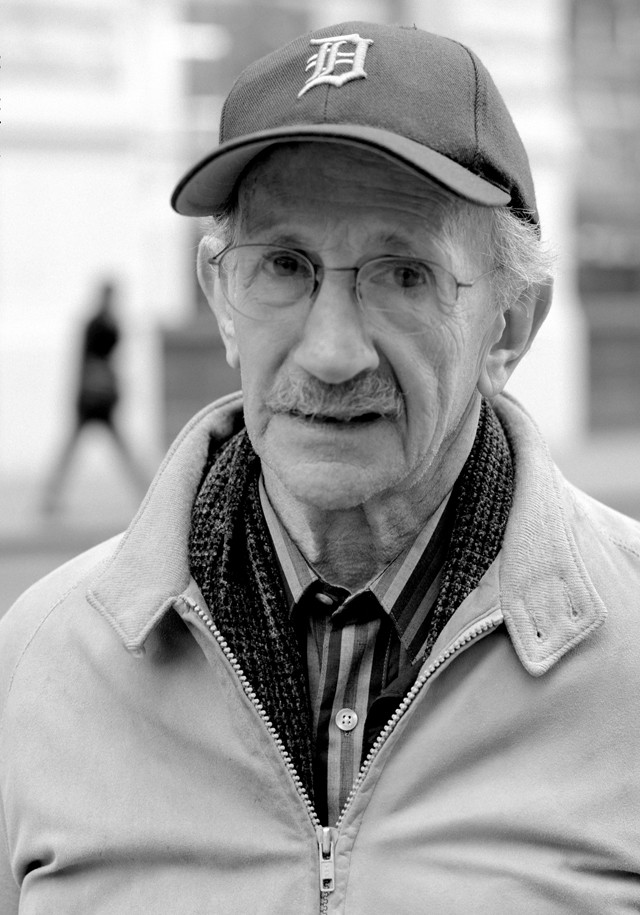“Mechanical Horse”: A Poem by Philip Levine
From the Archives

From the Archives is a column that looks back on highlights across the magazine’s history. In this edition, Greg Brownderville introduces an early poem by Philip Levine.
Philip Levine (1928–2015) was a major American poet, celebrated for his evocations of working-class life in his native Detroit, Michigan. Levine won a Pulitzer Prize and a National Book Award, and in 2011 was appointed Poet Laureate of the United States.
“Mechanical Horse,” like much of the verse in Levine’s first two books, is quite formal, markedly different from the demotic free verse for which he later became famous. Here, the predictable machinery of stanza helps us see and feel the “five and dime” horse ridden by the boy. Occasionally—in the father’s stilted thoughts, for example—we might find evidence of a young poet not yet in full command of his materials, but hints of the later Levine come through. The first line of the last stanza harbingers Levine’s mature voice: “It is so obvious; he goes no place.” I love the image in the first stanza of “a magic glass you cannot fill,” as well as these unforgettable lines about the manmade horse: “The legs are free and motionless; or worse, / They sometimes move in air and feel no land.”
This is the only Philip Levine poem ever to appear in our pages. SwR spotted Levine’s talent early, publishing “Mechanical Horse” in spring 1956, when the poet was only twenty-eight years old, one year from finishing his MFA at the University of Iowa and seven years from publishing his first book.
—GB
Mechanical Horse
by Philip Levine
To coax into the slot his father’s dime
Was little task for his determined will.
The charm remained beyond the hundredth time,
Just like a magic glass you cannot fill.
With suitable western gestures he took the saddle.
Beyond the five and ten rider and horse
Pounded with the plainsmen toward a battle
With painted Apaches in all their cornered force.
He pleads and papa fathers forth the coins
And notes with passing pride the certain face,
Descended surely from triumphant loins—
The living glory of a living race.
“Our time runs out,” he thinks, “but it is best
For in their time they too must choose a course
As we chose ours. Our fathers broke the West
Exactly as he masters forth this horse.”
The town, the five and ten, the Saturday
Busy spinning toward the day of rest,
The shoppers, luxurious and bloated with their pay,
The familiar father, the boy who mocks the West,
You may forget in time. Mark the horse.
A moving column joins him to a stand.
The legs are free and motionless; or worse,
They sometimes move in air and feel no land.
It is so obvious; he goes no place,
But simulates a motion we have lost
Or never found. Every child’s face
Is eager for the dream, the magic West
Where many wars are waged and all are won.
The children make this ride and only they
But time will bring them to the living one,
The hopeless treadmill toward eternity.
More From the Archives


